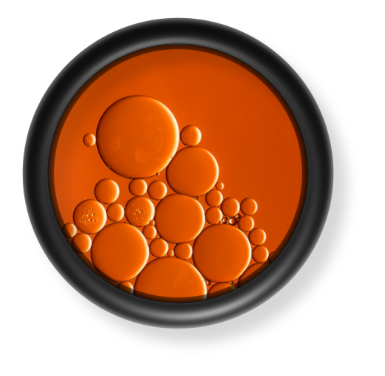
Silicone rubber makes for an excellent sealing material for products like o-rings and gaskets. Silicone is renowned for having one of the widest working temperature ranges of any type of elastomer, as well as superior flexibility and a low compression set. This material can be compounded to host a variety of other characteristics such as flame resistance, conductivity, and more. These unique traits paired with being cost-effective make Silicone a great rubber seal and allow it to be used in a variety of different applications such as automotive, aviation, construction, electronics, and even the food and beverage industry with FDA-approved silicone rubber.
The standard temperature range on Silicone is -80ºF (-62ºC) up to +450ºF (232ºC) and for special compounds, could go as low as -175ºF (-115ºC). APG stocks durometers 50 and 70. If you need something softer or harder, please contact us. When stored properly, Silicone can last an infinite amount of years without degradation of the compound. This material is color-coded to be red however if needed, these rubber rings can be custom ordered to be any color you may like.

Temperature Set
Silicone rubber has one of the best temperature ranges of any elastomer going from -80ºF to 450ºF without losing any flexibility or strength. Comprised of silicone and oxygen atoms, silicone rubber has a unique bond that allows for flame resistance and can be compounded to create a vast number of characteristics needed to get the job done.
Nature
Silicone rubber is one of those materials that can withstand the forces nature throws at it. This material can withstand UV light, sunlight, weathering, and ozone. These properties make it extremely useful in the outdoors! This is the reason why silicone rubber is used in many products you use every day such as silicone tape, rubber seals, o-rings, gaskets, and marine silicone products.

Dynamic Applications & More
Despite silicone having great properties, there are several applications silicone isn’t preferred. Due to their low tensile strength, poor tear resistance, and wear resistance, they are typically not recommended to be used in dynamic applications. Gas permeability is rated as poor, meaning gas can penetrate the material causing leaks, swelling, and blistering on the surface of the material. Nitrile and EDPM deliver outstanding performance for dynamic sealing applications.









 +1 800-888-5223
+1 800-888-5223

.png?width=352&name=PTFE%20(1).png)

.png)